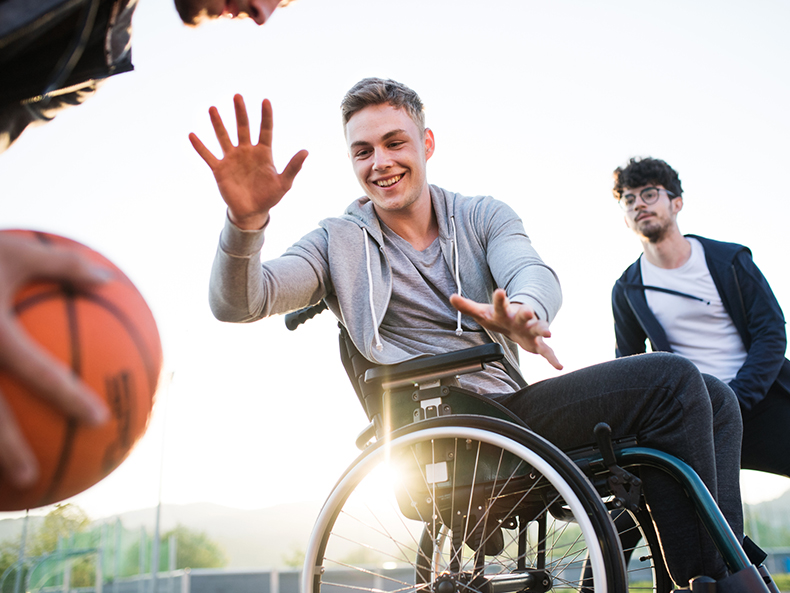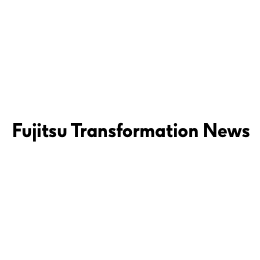The Tokyo 2020 and Beijing 2022 Paralympic Games were held, and the spotlight on para sports, which are sports played by disabled athletes. However, the world of para sports faces two major challenges: the lack of training facilities and a shortage of coaches. Fujitsu collaborated with the local government of Tagawa City, Fukuoka Prefecture to tackle these issues. They conducted a field trial together on remote coaching to see if they could overcome the physical distance between coaches and athletes using technology, reducing the burden on coaches while helping athletes improve their performance. This field trial opened up new possibilities, such as new methods of coaching that were not possible with face-to-face instruction, and other applications of this technology to other than para sports.
- Contents
Two Big Issues in Para Sports: shortage of Training Centers and Coaches
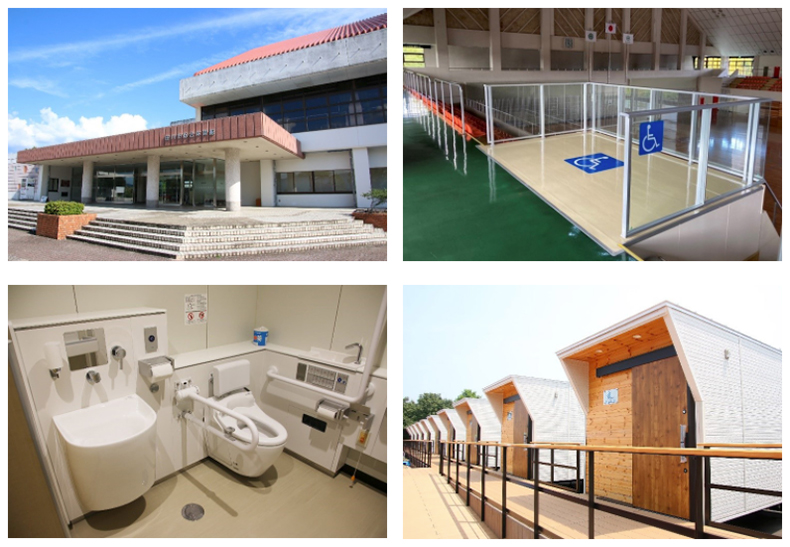
Many people watched the Tokyo 2020 and Beijing 2022 Paralympics and were enthralled by the intense matches.
In para sports, athletes make the most of their physical abilities and develop team strategies with each member's strengths and weaknesses in mind. Meanwhile, the world of para sports faces many ongoing challenges.
One issue is the lack of accessible training centers. Of the approximately 190,000 sports facilities in Japan, only 139 facilities are designed for (or prioritize) disabled people. Para athletes are restricted to a mere 0.07% of all sports facilities in the country.
Tagawa City, Fukuoka Prefecture set out to proactively address this issue. Kimito Futaba, who became the mayor of Tagawa City in 2015, has a vision for the city: "realizing an inclusive society where everyone can thrive, regardless of disability or nationality." As part of his initiatives, the city has nurtured relationships with para sports organizations such as the German and Belarusian wheelchair fencing teams.
The Tagawa City General Gymnasium was first built in the 1980's and was initially not wheelchair-accessible. A major renovation in 2017 made the facility accessible. The city also installed several trailer houses as accessible accommodations and improved the surrounding infrastructure.
The mayor recognizes "the importance of improving infrastructure, but above all else, I value a mindset of inclusivity. We must be open-minded and accepting of all types of diversity, not just people with disabilities. This is just the beginning of Tagawa City's mission to realize an inclusive society."
Tagawa City encountered one other issue as it deepened its ties with para sports organizations: Japan has very few para sports instructors.
Hiroyuki Hirakawa, the director of the General Affairs Department and chief of staff of the Tagawa City Mayoral Office (Director of Policy Promotion), recalls, "I heard Paralympians say that they moved to Tokyo because they couldn't find instructors locally. When we held training camps for the German and Belarusian wheelchair fencing teams, para athletes from all over Japan flocked to the gymnasium for training from world-renowned coaches. These experiences have made me acutely aware of the importance and necessity of competent coaches."
Using Private 5G to Get Remote coaching From Coaches
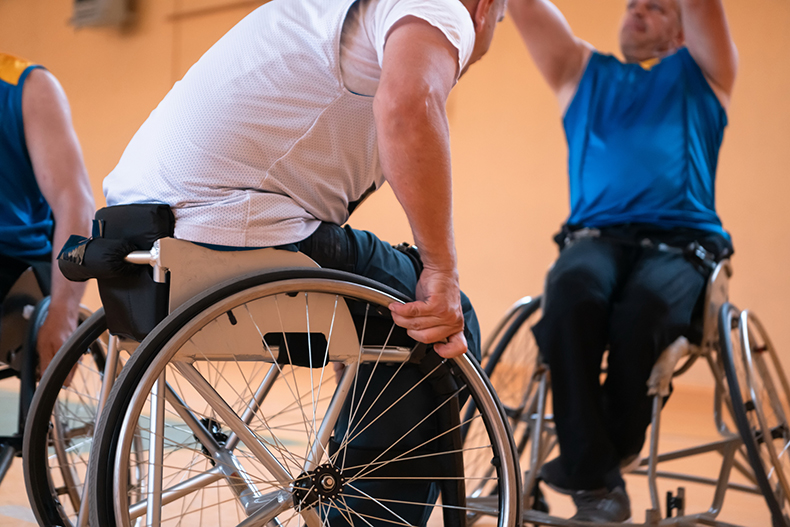
Therefore, Tagawa City applied for the "FY2021 Development Demonstrations for Realizing Private 5G Services to Solve Issues," a project held by the Ministry of Internal Affairs and Communications. The city's entry for the project was "Remote Coaching for para sports as part of an Inclusive Society."
Fujitsu and Fujitsu Japan commiserated with Tagawa City's endeavors and joined the consortium as members.
The project involved installing Private 5G at the Tagawa City General Gymnasium and conducting a field test with the aim of improving the skills of para athletes and diversifying coaching techniques.
More specifically, they would establish an environment in which coaches based in other locations can directly instruct athletes by implementing a remote coaching system (Figure 1).
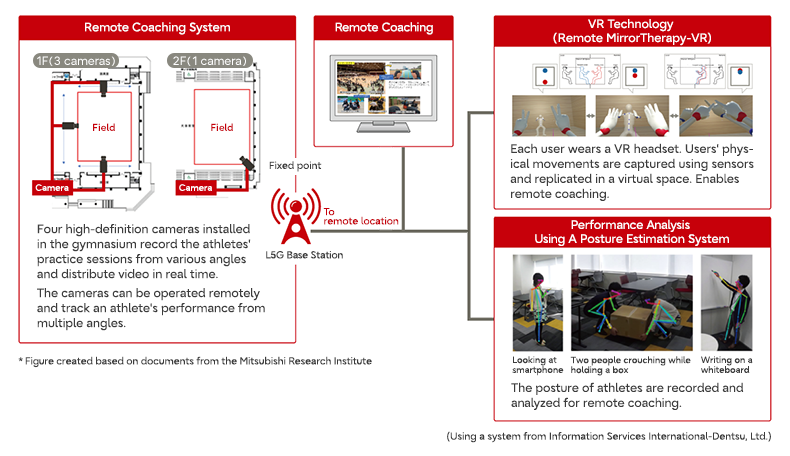 Figure 1: A complete picture of the remote coaching field trial system
Figure 1: A complete picture of the remote coaching field trial system
Hiroyuki Misaka, a coach with General Incorporated Association D-Beyond and former athlete of the Japan national wheelchair rugby team, said "in-person coaching involves the stress and cost of transportation, and takes up more of the coach's time. Remote coaching bypasses these issues, so it may broaden the scope of training."
The gymnasium will be equipped with four high-definition cameras that will record the athletes' practice sessions from various angles. The high-definition video footage will be transmitted to the coaches in real time. Coaches can remotely operate these cameras, allowing them to track the athletes' performance from every angle.
During practice, both athletes and coaches wear VR headsets. Their physical movements are captured using sensors and replicated within a virtual space (VR coaching/VR meetings).
The system can also use this data to analyze the posture of athletes during practice and determine whether they are standing, crouching, manipulating an object, or other actions.
Daiki Mori, Head of Fujitsu's 5G Vertical Service Division, said "our challenge was whether we could transmit data from the high-definition cameras without lag or packet loss. We ensured that we could send footage and VR content that would actually be useful for the coaching sessions."
After lots of preparation, the remote coaching field trials were held. It’s the first time for atheletes and coaches to have the coaching sessions through remote coaching system, although remote meetings have become popular since the COVID-19 pandemic.
The trials were held twice, in December 2021 and February 2022. Both athletes and coaches were a bit nervous at first, but they were communicating smoothly by the end.
Takashi Hori of the Fukuoka Dandelion wheelchair rugby team, who participated in these trials, said the following:
"Currently, there are only a small handful of people involved in wheelchair rugby who are at the coach level. Athletes in all teams have to also act as coaches and help each other improve, so we had high expectations for this field trial. We have received the other remote training in the past, but that systems were difficult to incorporate into our regular practice because we had to attach sensors to our bodies to track our movements. But this time, I was surprised that these cameras could capture our movements without sensors on our bodies. I thought that it would be difficult to convey physical movements without meeting our coaches in person, so I was amazed how similar the VR experience was to in-person training.”
Coach Misaka, who has been involved in this project since the planning stage, said
"Communication can be a challenge in remote settings, but in this field trial, we were able to experience conversation alike face-to-face communication using a variety of technological tools. Farther more, in some ways it surpassed in-person training. It's impossible to give advices watching from four different angles during in-person training. I was very excited to see the athletes improve during our virtual sessions.
After the field trials were conducted, Mori concluded,
"During the field trial, we consulted other members of the consortium and made continuous improvements to the system to craft an amazing experience for the coaches and athletes. For example, the Private 5G base station software was needed to improve to minimize transmission delays and verify the optimal transmission capacity for remote coaching. With the growing need for remote online communication tools, this case study is also expected to apply for various other fields such as the manufacturing sites."
Possibilities Beyond Para Sports: To toward an Inclusive Society Through Technology
This field trial has opened the door to countless possibilities.
In areas that lack local coaches, this technology will help athletes access valuable training without traveling to Tokyo. In the future, it may even allow athletes rare opportunities to seek guidance from the world's best coaches. It will provide more opportunities for disabled children to participate in para sports, ultimately increasing the number of players and improving para sports.
Coach Misaka remarked, "I believe this project will encourage other people with disabilities to participate in society by showing them that they can be a sports coach even if they are disabled. It provides an opportunity for people who has a limit access by their disabilities to expand their own communication."
This technology is applicable to various fields other than para sports or general sports.
Mayor Futaba expressed his enthusiasm, saying, "This will encourage people with disabilities to visit Tagawa City and show everyone that Tagawa City is an interesting place. I hope it will inspire more people to interact with our city and invigorate the city."
Fujitsu's Mori said, "It’s a worthwhile challenge to solve social issues using our technology. It’s expected that online communication will continue to be in demand even after the COVID-19 pandemic. After conducting this trial, we would like to continue developing this technology and apply it in other fields, all over Japan, and across the world."
At Fujitsu, we aim to solve social issues with technology and realize a society where no one is left behind.
We will continue to explore new possibilities while staying close beside every consumer.
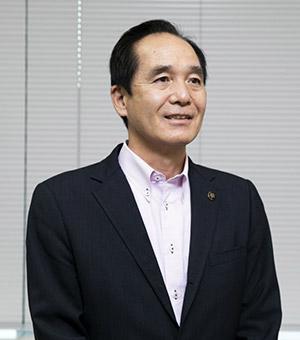 Kimito Futaba
Kimito FutabaMayor of Tagawa City
Tagawa City, Fukuoka Prefecture
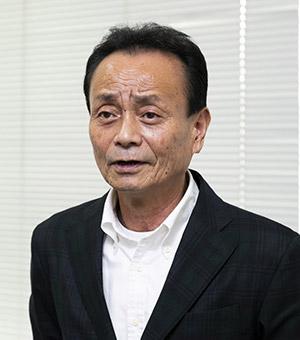 Hiroyuki Hirakawa
Hiroyuki HirakawaDirector of the General Affairs Department & Chief of the Mayoral Office
Tagawa City, Fukuoka Prefecture
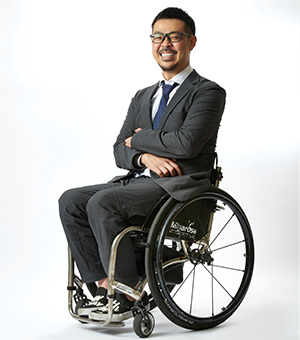 Hiroyuki Misaka
Hiroyuki MisakaFormer Japan’s national wheelchair rugby team
General Incorporated Association D-beyond
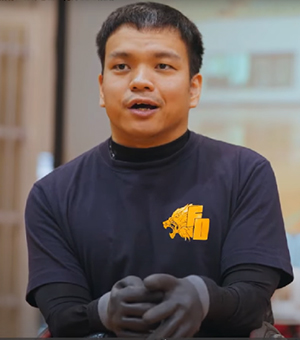 Takashi Hori
Takashi HoriFukuoka Dandelion
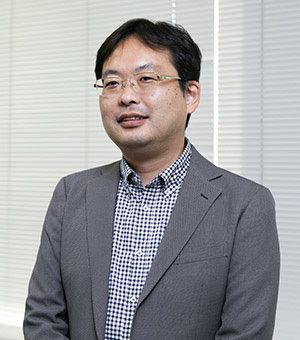 Daiki Mori
Daiki MoriHead of 5G Vertical Service Division
Fujitsu Ltd.


